Vogue CS in English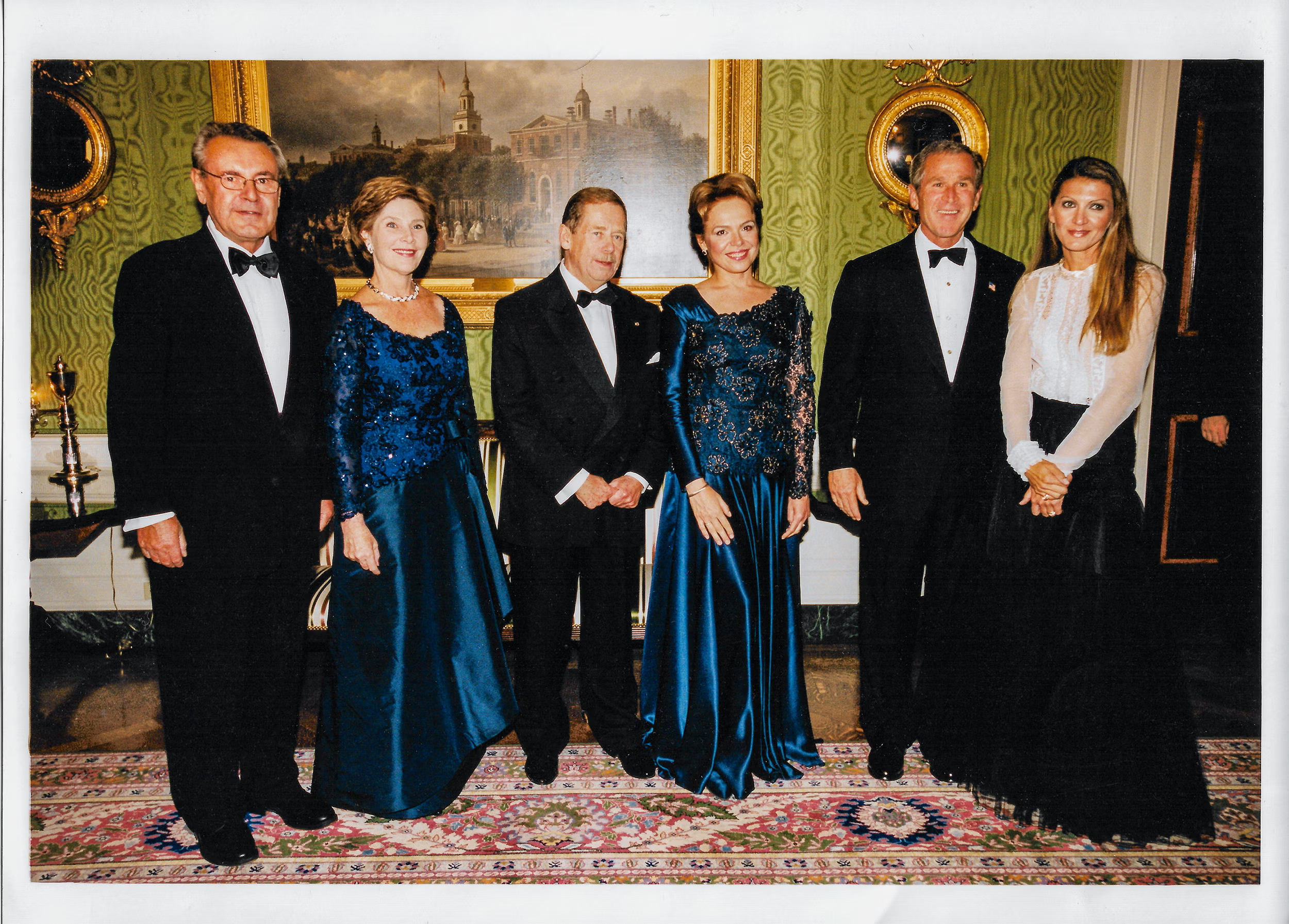
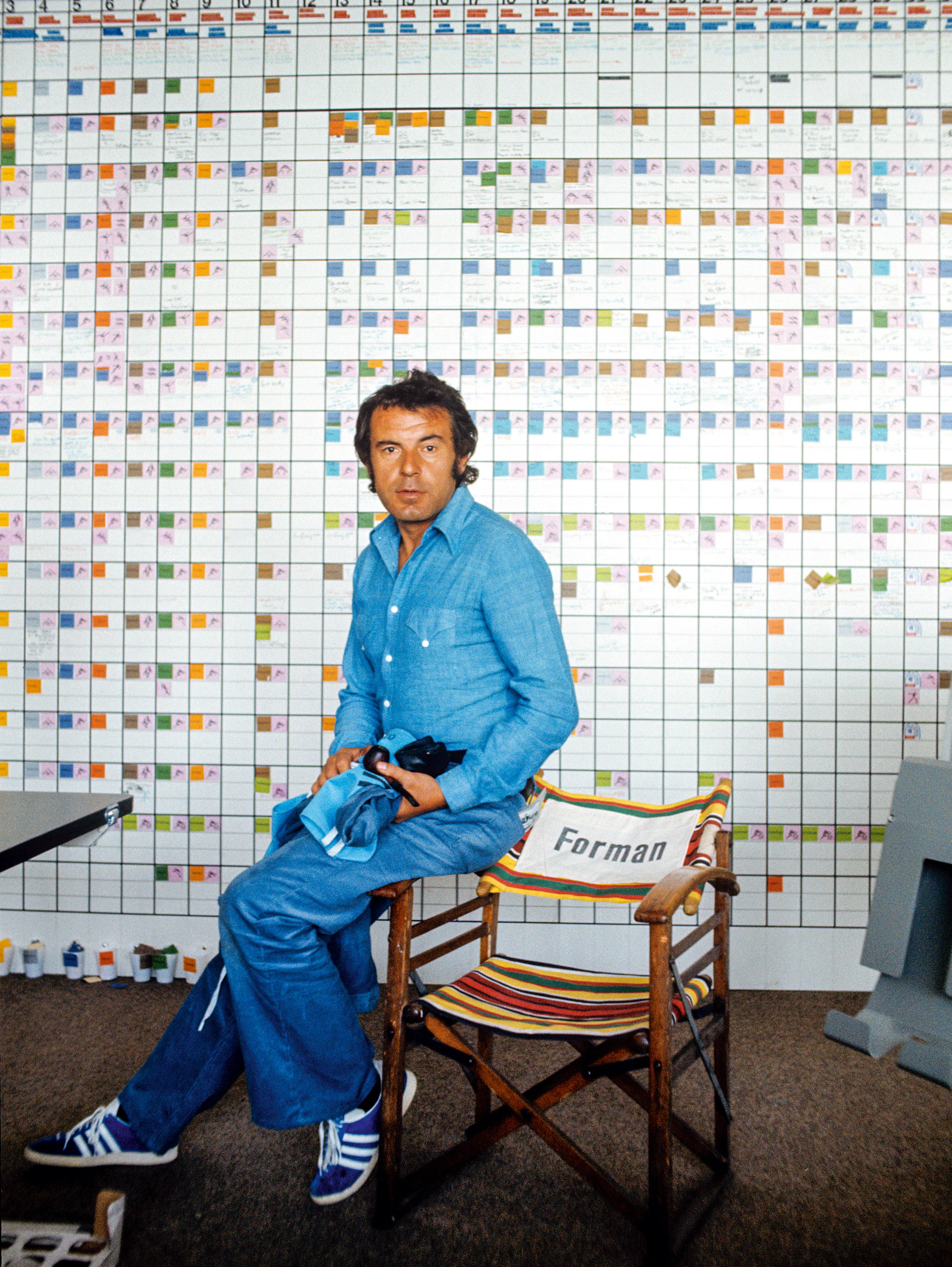
Martina and Milos Forman: A Perfect Complement
Paulina Pořízková10. 4. 2019
When they first started dating, they were categorized as the typical cliché – "young, attractive blonde and the successful older man." But the relationship between Martina and Miloš Forman was filled with something that most of us can only dream of – true love. Love that goes through ups and downs, but is so strong that it can handle anything. For more than a decade, her close friend, Paulina Pořízková, admired her.
Milos and Martina were already sitting down as my husband and I entered the restaurant. It was a quaint little place in the depths of green and leafy Connecticut, where they lived. They both stood up to greetus. Milos, handsome with his silver hair, tan, and curious, quick brown eyes; Martina tall and curvaceous, with an amazing mass of shiny golden hair. We shook hands, gave air-kisses and sat down. An opened bottle of wine was already on the table and Milos poured for us, hands steady, voice deep and sonorous. As a perfect complement, Martina spoke in soft soothing notes and almost deferentially, so as to best let her husband shine. They both sat down again with their backs against the restaurant wall, white painted brick, and so were framed like a studio portrait of a perfect couple. There was no denying it was a somewhat clichéd portrait; the older powerful man and his hot, young, blonde wife. They each had their designated part in their marriage: the important man, the submissive younger wife. But like that portrait of them up against a stark white background, this was a clichéd notion, based only on first impressions. Within minutes of meeting, one could discern the deep respect between them. Far more than my own marriage, where our roles, as far as social standing at least, may have seemed equal but where the truth was different.
Milos laughed loud and often. His laugh was surprising if you didn’t know him. The timbre and quality of it was almost thunder-like, loud yet soothing, like velvet-covered timpanibeing hammered in the distance. He had had my phone number from years before, when I auditioned for him for a movie. (I clearly didn’t get the part, and that was a good thing, the actress who did was superior to me in every way). He had just casually called, out of the blue, to ask whether my husband and I would like to have dinner with him and his wife. It appeared Martina had read my first novel, A Model Summer, and really liked it. She was also a writer, Milos informed me, and promised to send me her books which were in Czech.

Foto: archiv Martiny Formanové
The White House, Miloš Forman, Barbara Bush, Václav a Dagmar Havel, G. W. Bush, Martina Formanová
At the table in the restaurant, with a merry candle in the middle, Martina began to speak about my book. Although perfectly fluent in English, she seemed a little hesitant, a little shy. Milos, with his large voice, and I, used to being center of attention, easily blanketed any what may have been uncomfortable silences, being as my husband is not exactly a conversationalist. We spoke of my book a little, then about Martina’s first book, Skladatelka voňavého prádla, which Milos had sent as promised. I found it funny and honest, and written with a light hand. Behind this clichéd image of the gorgeous blond on a famous movie director’s arm, there was a woman with talent, a quick mind and mordant wit. We all ordered off the menu except for Milos, who had apparently been to this restaurant sufficient amount of times to allow for the owner and chef to know his palate and preferences, and throughout the evening served him a tasting menu, apart from us, that Milos took great pleasure in devouring.
The impression left on me from this dinner was how fully Milos relished his life. How he took pleasure in pleasure. He treated his wife with reverence, and with the same sort of enjoyment as his meal and wine. His beautiful girl, how he delighted in her. She in turn, gazed at him with undisguised respect and tenderness. Years later, Martina told me a little story of how a friend of Milos took him aside to caution him about his involvement with Martina. "I am afraid… She may be looking for a father figure in you," the friend said, hesitatingly. Sheappeared to be truly embarrassed about what she took as her important discovery. But Milos, cigar in hand, said: "Oh, well, just let her keep looking."
Dinner took hours, we had great food as well as a lively political discussion. By the end of it, Martina had lost most of her shyness and she peppered me with question about my childhood which I was only too pleased to answer. And so, our friendship began.
The last time I saw Milos was at his house, coming down from his bedroom in a t-shirt and shorts, wild haired and sleepy. He had gotten a little hard of hearing, but still lit up at new company, cracking a joke as Martina busied around him to make him comfortable. Her undisguised tenderness for him was at this time maternal. From calling him Milošku or Muši, to making sure he was set with his coffee (mixed with Baileys) and comfortable in front of their large (giant actually) TV, Martina treated him as a combination of a lover and a precious only child.
The timespan between our first dinner and last breakfast was somewhere close to ten years, in which Martina had written two TV screenplays and then a book about mylife. Well, my parent’s life, to be more exact. Případ Pavlína. The story of two young lovers who escape communist regime, but abandon their three-year-old child in order to find a better life. Martina became fixated with our story; she collected all of our memories and combined it with research in the secret police archives and contemporary events. Her book, when published, brought my broken family together for the first time in forty years, and made it possible for my grown sons to finally meet their grandfather.
Martina is first and foremost a mother. Of course, she is a mother to twin boys, twenty years old now, but there has always been a nurturing quality about her, a compassion for the needy, a little extra room in her heart for the broken, whether human or animal. When I arrive at her house in Connecticuton a wintry and stormy Tuesday afternoon, she gets up from behind her computer where she had been working on a new screenplay. She is excited about her work, it’s going well. It’s a comedy about sisters, and she tells me a little about it as she makes a fire in a fireplace large enough to roast a pig. She makes sure I am comfortable, that I like her plan for salmon and spinach dinner, and assures me there is a bedroom for me to stay in if the weather gets bad and I want to stay overnight. The living room, where we make ourselves comfy on brown leather couches, is a former large barn, made cozy with lots of wood detailing and books and art and rugs and pillows, not to mention three dogs of various sizes, x-small, medium and x-large, and fourcats who put in their appearance when they feel like it. Martina brings out a bottle of white wine, I take out my knitting. Martina and I are the same age, and we were both married to much older and incredibly talented men. I was always curious about how much we had in common, as I believe was she. But once we became friends and between all the girly chitchat, we realized it was less than we thought. While my husband and I were following a romance full of courting and jealousy and obsessions, Martina and Milos were best friends. Ironically, we both became single at the same time too. But she was left with beautiful memories of her husband, while mine disintegrated under the weight of a divorce. Our conversation gets deep quickly. While snow and hail pound the roof and the windows, the dogs snore gently and the fire warms our feet, I ask her about Milos. I already know how much she misses him. After months and months of paralyzing sorrow, she hasnowalmost frantically thrown herself into writing, renovating their New York home and mothering her two boys who of course want nothing as much as independence. She has also begun to take stand-up comedy classes. To me, that is the bravest thing I can imagine. With a wry smile, she allows that there truly is something about comedy springing forth from the saddest well. But it’s not the sadness of losing him I want to hear about. I want to hear about the joy of finding him.

Foto: Rainer Binder/ullstein bild via Getty Images
Miloš Forman, 1972
Milos was lecturing in a screenwriting class at FAMU, and she was the eager student in the first row, trying to get him to notice her. Of course. He was Milos Forman. A formidable and famous man, even in the giant country of America. How big he must have seemed in the relatively small Czechoslovakia. This coupled with his actual presence, his booming baritone, his lust for life, his curiosity and his charm made him ageless. (I know this firsthand, this is about the same time I auditioned for the earlier mentioned movie). It wasn’t strange for a twenty-year-old to swoon over him. But nothing happened. The formidable Milos left to attend to a schedule packed with events, and Martina returned to her studies and her on and off again relationship with Karel (Gott).
It wasn’t until a few years later, when Martina had hit the United States where her best friend and sister Simona lived, and took on jobs as a maid cleaning fancy houses in Long Island (the rich people vacation enclave), while she worked on her Master’s thesis, that she got the brilliant idea to see if she could finagle an original quote or recommendation from her fellow country man, Milos Forman. She wrote a note, in Czech, sent it to his agent, and fully expected never to hear anything more about it. But then came the day when she returned to her tiny apartment next to a garage to see her answering machine blink and she pressed play. Milos’ voice filled the room.
And eventually and permanently, he would fill her heart and her life.
Sipping her wine-spritzer, stretched out on her couch in tight black tights and a tunic, Martina sighs when she talks of him. "I could always ask him anything," she says, with a great amount of wistfulness. "I could always discuss everything and anything with him. He would always advise me, help me, anchor me." She pauses. We both know what is unsaid. The "always" has turned to nevermore.
Milos was intellectually exciting, without being a pedant. He was full of opinions and curiosity. That zest, that love of good things in life spurred him on to the end of his life. It also made it possible for his much younger, beautiful wife to adore him and create a life for both of them filled with love and mutual respect. When Martina became pregnant with twins and Milos was working on the movie The People vs. Larry Flynt, her life, despite the complications of carrying twins, was her dream come true.
Of course, everything wasn’t always perfect. There was plenty to cry about. Milos’ childhood had left deep scars and at times made him emotionally unavailable to the people who loved him. And - artists tend to be moody. If male, their wives – even if artists themselves – allow for the men’s moods to dominate. But here Martina and I had a different reaction to the same issue; Martina, the mother, could empathize and forgive, while I held grudges and felt undervalued. What becomes clear to me is – although I had many wonderful years with my husband, I had chosen to love a man because he treasured me. Much like a priceless vase. But loving an object is not the same as loving a full, complete person. With flaws. And problems. And bad moods. Martina had chosen to love a man who listened to her. Who made her feel safe. Who heardher. I can’t help but feeling a little jealous.
At the end of a productive day, as well as in the end of a well-lived life, what remains is the satisfaction of accomplishment, the understanding of fulfillment and the warmth of having been loved. Milos enjoyed his life until the last day. Only two nights earlier, he and Martina had gone to a restaurant with friends, having a great long meal with good wine and finished off with Milos’ ubiquitous cigars.
The weather outside has gotten worse. I will be spending the night. Out talk now veers to our futures. Martina’s new script, the TV series that is about to get made about my parent’s life, my writing, my recent uptake in the modeling world. We speak of our hopes, of all the things there are to still be accomplished. Martina shows me a video of her stand-up comedy monologue. As a comedienne, she turns into the character of Martina, the very same Martina I first met years ago, the clichéd idea of who she is – a sexy, foreign and somewhat bewildered blonde – and makes it charmingly hilarious. She cracks jokes about being a foreigner, about her family, and even one about a dead husband. But in her voice, the joke comes off as poignant as well as funny. She is a natural talent at this, I realize. If she hadn’t met Milos, would she by now be a successful comedienne? But I already know she wouldn’t have traded her life for anything. Especially not one where she gets to be the star instead of the mother and wife.
We speak of men and love. The men we hope to meet, love we hope is still to come. This is where our weight of memories suddenly takes a sharp turn, and I realize that my disillusionment with my marriage makes me hope for unchartered waters, and suddenly it’s Martina who is in the unlucky position. She doesn’t want or need something different. When Martina speaks of her husband, it is with a catch in her voice, a silent tear, but mostly – gratitude. How lucky she has been to share her life with him. And the understanding that the absence, the void Milos’ departure leaves, is permanent.
There is no one else like him.
Vogue
Doporučuje
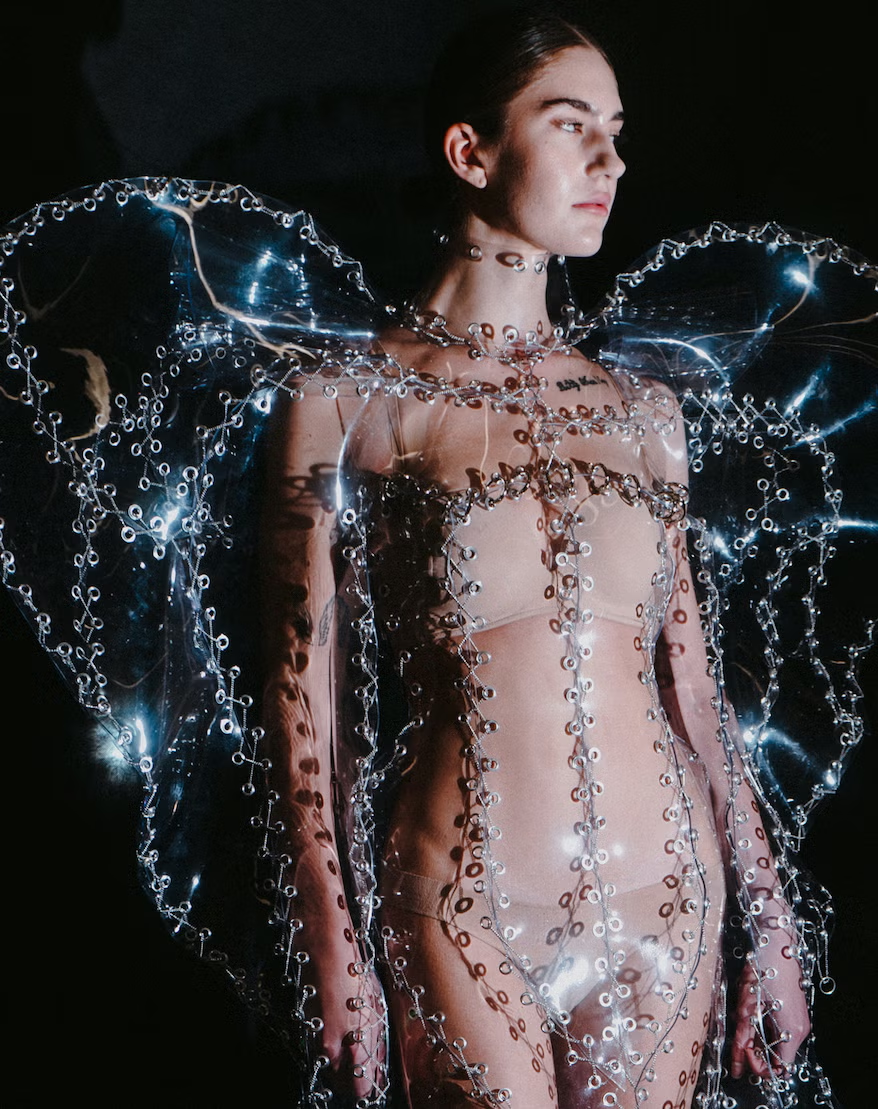
Móda
Nemusíme se doprošovat, aby nás respektovali, říká návrhář Sander Bos
Jana Patočková20. 10. 2025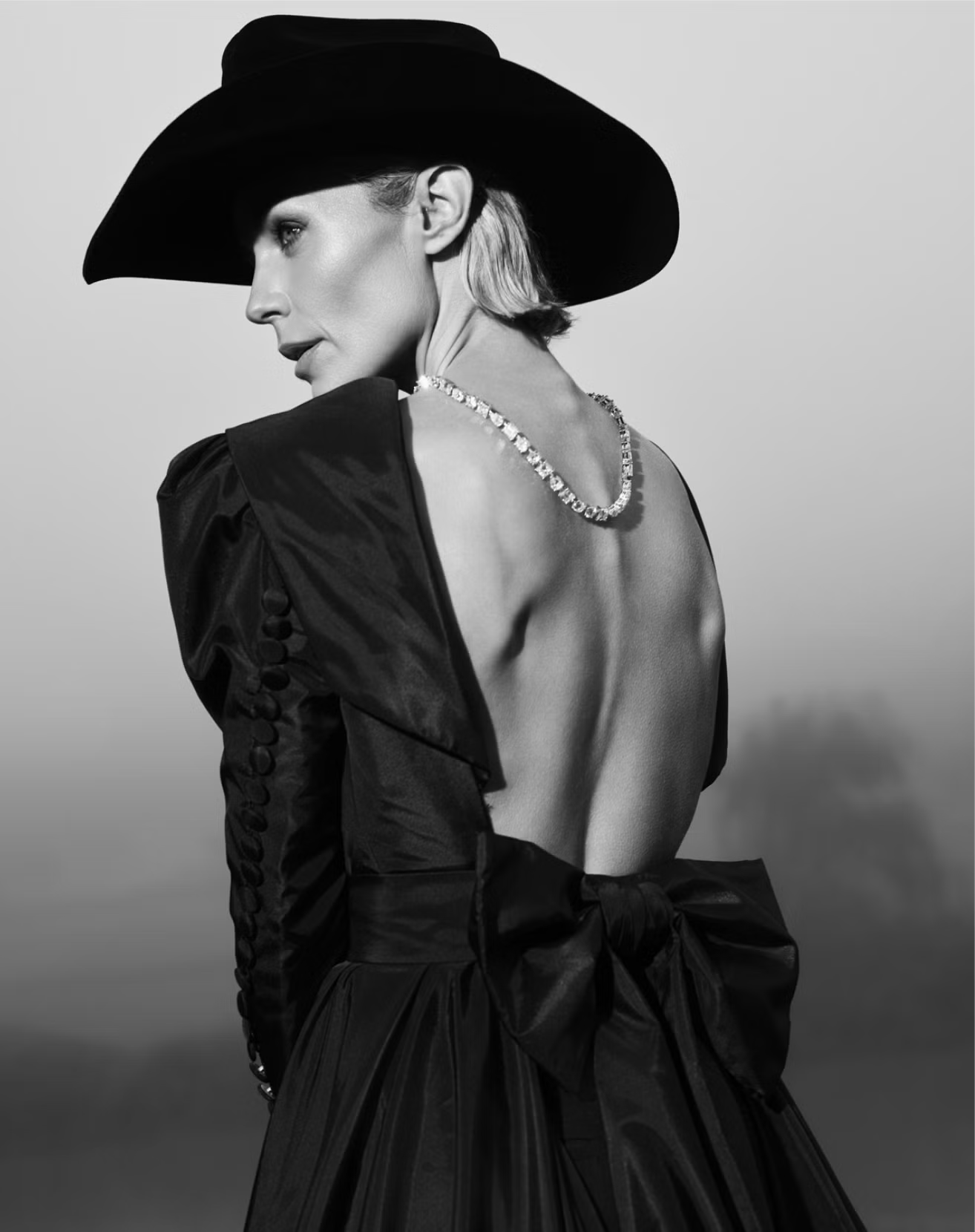
Vogue CS in English
Go West: When Ecotherapy Meets the Biggest Fashion Trends of 2025
tým VOGUE24. 8. 2025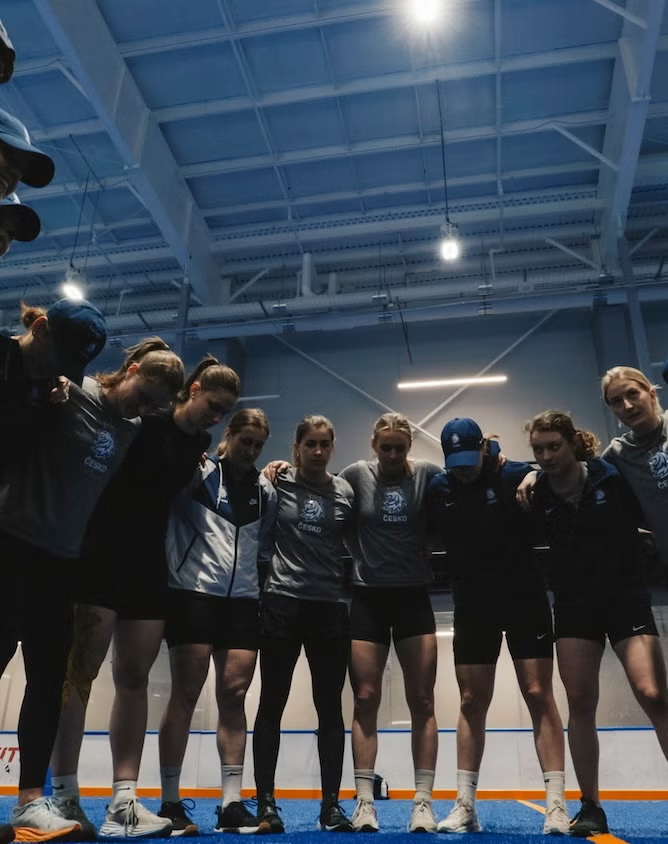
Vogue Leaders
